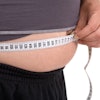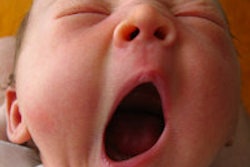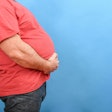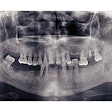A preliminary University at Buffalo study of young children undergoing treatment for cavities in their baby teeth found that nearly 28% had a body mass index (BMI) above the 85th percentile, indicating overweight or obesity.
The findings are being presented at the Endocrine Society annual meeting in San Diego, June 19-22.
The study involved 65 children ages 2-5 who were treated in the operating room at the University at Buffalo Women and Children's Hospital. All children required anesthesia due to the severity of their dental problems or other issues.
The children, who had been fasting for 8-12 hours, were weighed and measured for height. After the patients were anesthetized, researchers measured waist circumference and drew blood. Parents completed a food questionnaire while their children were in surgery.
The data showed that:
- Eighteen of the 65 children (28%) had a BMI above the 85th percentile.
- 71% of the children had a calorie intake higher than the normal 1,200 per day for their age group.
- Waist circumference compared to height was significantly higher in the overweight and obese children compared to the children of normal weight, measurements showed.
"The main point of our findings is that poor nutrition may link obesity to tooth decay," said lead author Kathleen Bethin, M.D., an associate professor of pediatrics at the University at Buffalo. "Thus the dental office, or 'dental home,' may be an ideal place to educate families about nutrition and the risks of obesity and dental decay."
The researchers found no difference in total calories consumed by the overweight and healthy-weight kids, she added, "so the problem isn't overeating, per se, just making the wrong food choices."
Dr. Bethin and her colleagues are now analyzing whether the overweight children eat more processed sugar, drink more juice, and have other unhealthy eating habits compared to the healthy-weight children.
Copyright © 2010 DrBicuspid.com



















